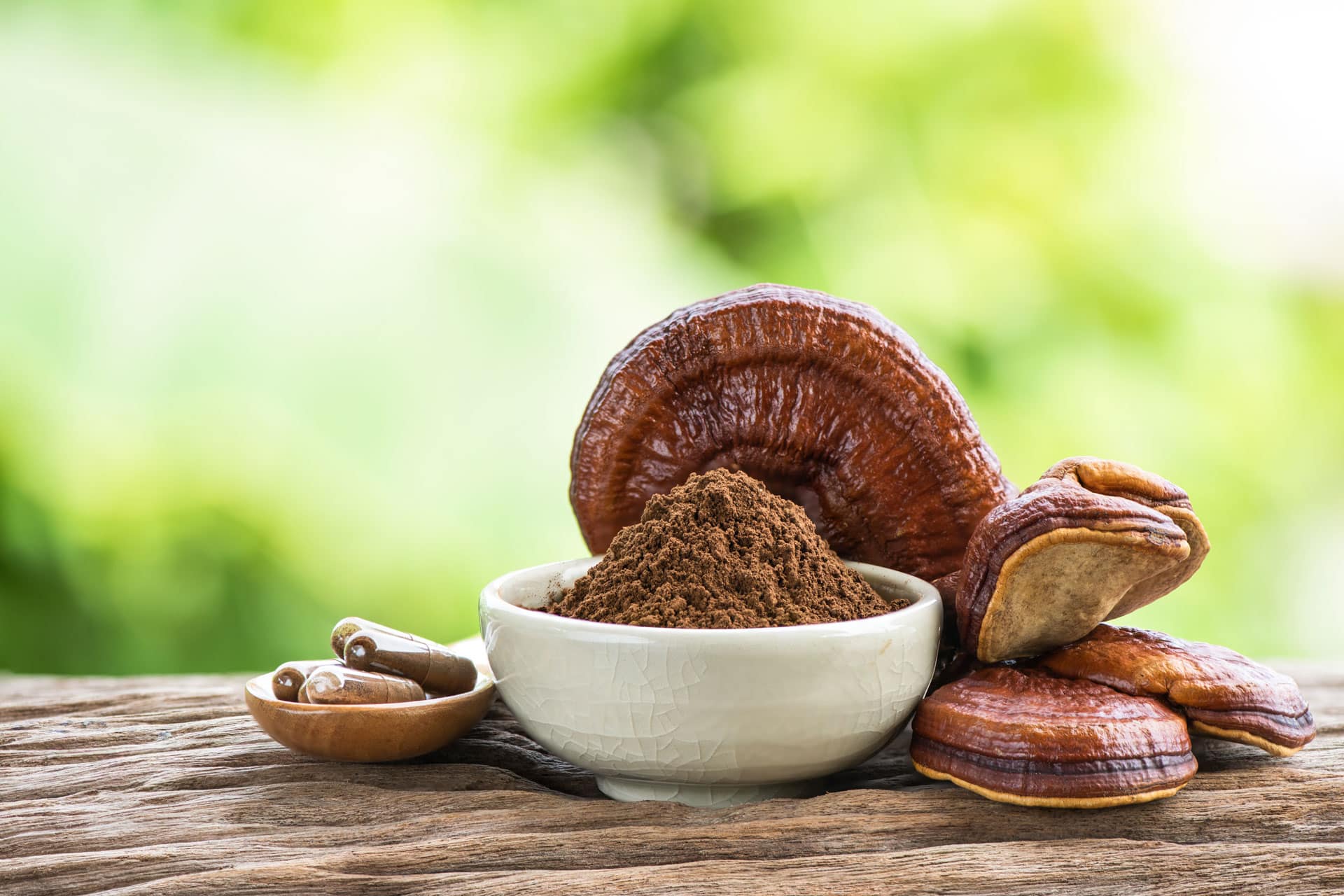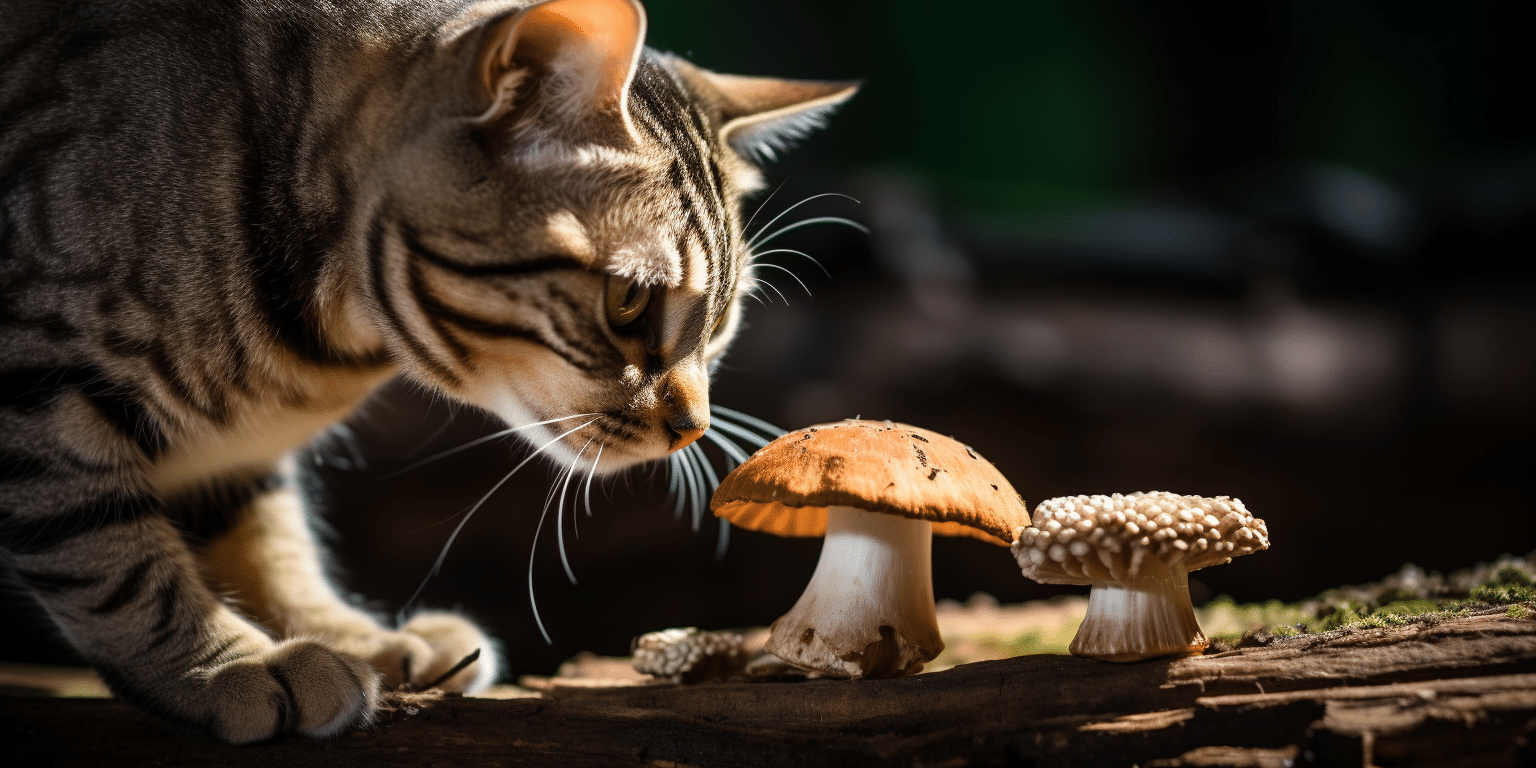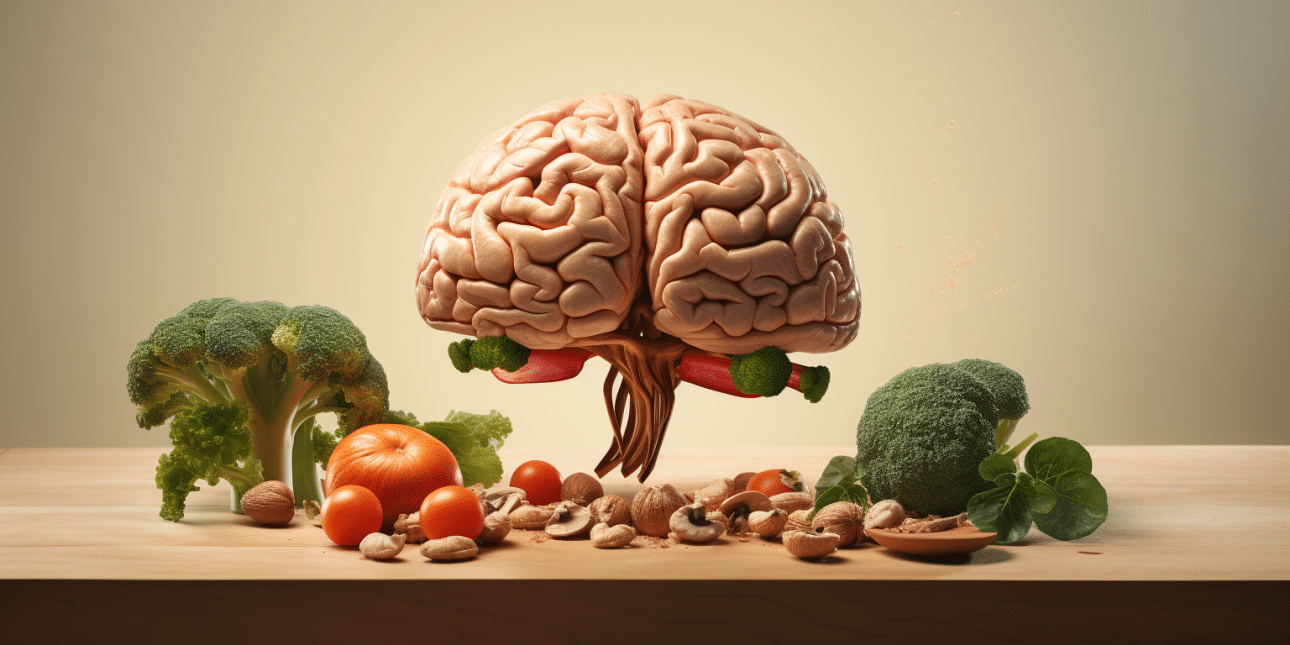Potential alternative treatments for ADHD include functional mushrooms like lion’s mane which is known to improve focus and alleviate symptoms of mental health disorders often accompanying ADHD, micro-dosing psychedelics, and caffeine, which may improve focus and cognitive function, but their effectiveness and safety require further research and consultation with healthcare professionals.
Table of Contents
ToggleADHD: A Brief Overview
Attention Deficit Hyperactivity Disorder (ADHD) is a complex medical condition that primarily impacts an individual’s ability to focus and exercise self-control. This neurodevelopmental disorder can manifest in a variety of ways, making it difficult for those affected to stay attentive, maintain their focus, and control their impulses. This lack of control often extends to both their personal and professional lives.
ADHD is not limited to children; it affects approximately 11% of children and 4% of adults worldwide.1 This global prevalence underscores the importance of understanding ADHD, its effects, and potential treatment options.
The Rising Search for Alternative Treatments for ADHD
The first-line treatments for ADHD traditionally involve stimulant medications. However, an increasing number of people are seeking alternative treatments due to a shortage of these medications. One such alternative gaining popularity is the lion’s mane mushroom, known for its ability to improve focus and alleviate symptoms of mental health disorders2 that often accompany ADHD.
Lion’s mane is not merely a makeshift solution. Many individuals with ADHD have found it effective in managing their symptoms. Its natural properties have made it a popular choice among those seeking alternatives to traditional medication.
Functional Mushrooms: A Potential Alternative
Functional mushrooms are an exciting field of study within the world of natural remedies. Unlike regular mushrooms that are primarily valued for their nutritional content, functional mushrooms offer additional benefits. They contain properties that aid in reducing stress, increasing focus, and generally enhancing cognitive function.
Among these functional mushrooms, lion’s mane holds a prominent place due to its historical use in traditional Chinese medicine. Along with other varieties like reishi and turkey tail, lion’s mane has been used for centuries to treat various ailments. Its recent rise in popularity among those seeking alternatives for ADHD treatment points towards its potential effectiveness in managing the disorder’s symptoms.
In the following sections, we will delve deeper into the world of functional mushrooms, focusing specifically on lion’s mane as a promising alternative treatment option for ADHD.
Understanding ADHD
ADHD is a neurodevelopmental disorder characterized by symptoms like disorganization, impulsiveness, poor focus, restlessness, and mental health issues, traditionally treated through a combination of medication, such as Adderall, and psychotherapy like Cognitive-Behavioral Therapy.
Do you need custom white label functional mushroom products produced for your cannabis business?
SEE WHAT WE CAN DO
Do you need custom white label functional mushroom products produced for your CBD business?
SEE WHAT WE CAN DO
Definition and Explanation of ADHD
Attention Deficit Hyperactivity Disorder (ADHD) is a complex neurodevelopmental disorder with roots that can be traced back to both genetic and environmental factors. The exact cause of ADHD remains elusive, but research has indicated that factors such as genetics and the environment in which one grows up play significant roles in its development. Furthermore, maternal use of alcohol and tobacco during pregnancy has been linked to an increased predisposition towards ADHD in children.3
Another critical aspect of understanding ADHD involves the brain’s chemistry. Studies have suggested that there may be differences in brain chemistry between individuals diagnosed with ADHD and those without the disorder. These differences, while not entirely understood, could potentially explain specific behaviors or symptoms associated with ADHD.
Common Symptoms of ADHD
ADHD manifests itself through a variety of symptoms that can significantly impact an individual’s daily life. These symptoms typically include difficulty staying organized, following through on tasks, and completing work within a set time frame.
However, these are just some of the more common symptoms. In total, there are nine main symptoms associated with ADHD:
- Disorganization
- Impulsiveness
- Problems focusing on a task
- Poor time management
- Difficulties with multitasking
- Restlessness
- Low tolerance to frustration
- Mental health issues such as depression and anxiety
- Trouble coping with stress
Each person’s experience with these symptoms can vary greatly, making it essential to consider each case individually when determining appropriate treatment.
Traditional Treatment Methods for ADHD
Conventionally, treatment for ADHD has consisted of a combination of medication and psychotherapy. The most common medication prescribed is an amphetamine called Adderall, which works by increasing the availability of certain neurotransmitters in the brain that aid focus and attention.
Alongside medication, Cognitive-Behavioral Therapy (CBT) is often utilized as a form of psychotherapy for treating individuals with ADHD. CBT aims to help individuals develop coping strategies and change patterns of behavior that may contribute to their symptoms.
While these treatments have proven effective for many individuals, they are not universally successful or suitable for everyone – leading to an increasing interest in alternative treatments such as functional mushrooms.
Unpacking Functional Mushrooms
Functional mushrooms, notably lion’s mane and reishi, are unique fungi that have potential benefits for brain health and stress management, with lion’s mane being known for its cognitive enhancement properties and reishi for its calming effects, although research is still ongoing.
What are Functional Mushrooms?
Functional mushrooms are a remarkable class of fungi that offer benefits beyond just nutrition. These mushrooms have been recognized for their healing properties since ancient times, with their use rooted deeply in traditional medicine practices, notably Chinese medicine.
Fueled by this long tradition, functional mushrooms have gained a resurgence in modern times as researchers explore their potential health benefits. From boosting brain health to calming the mind, these humble fungi have a lot to offer.
An Overview of Different Types of Functional Mushrooms
Among the various types of functional mushrooms, two stand out for their unique properties: lion’s mane and reishi.
Lion’s mane mushroom has been marketed for its “brain-boosting” benefits. This mushroom isn’t just known for its unique appearance resembling a lion’s mane; it’s also appreciated for its potential cognitive benefits. Many people consume lion’s mane in various forms, hoping to enhance their focus and memory.
On the other hand, reishi mushroom is often referred to as the “calming mushroom.” For centuries, it has been used in traditional medicine to promote relaxation and manage stress. The calming properties of reishi can potentially help individuals dealing with ADHD manage their symptoms more effectively.
While both lion’s mane and reishi are receiving attention for their potential therapeutic effects on ADHD symptoms, it’s essential to remember that research is still ongoing. As we continue to unravel the mysteries of these functional mushrooms, it becomes increasingly clear that they may have an important role in managing ADHD and other cognitive disorders.
Lion’s Mane and ADHD
Lion’s Mane mushroom is believed to improve cognition, enhance memory and focus, and protect against neurodegenerative diseases, making it potentially beneficial for ADHD symptoms; however, the lack of specific research on its effects on ADHD and dopamine production necessitates further study.
An Introduction to Lion’s Mane Mushroom
Lion’s mane mushroom, scientifically known as Hericium erinaceus, is a unique type of fungi that grows natively across North America, Europe, and Asia. Its distinct appearance, akin to the mane of a lion, gives it its common name. Not just visually intriguing, lion’s mane has been a staple in alternative medicine for centuries. Its long-standing use speaks volumes about the faith many cultures have placed in its healing properties.
Potential Benefits of Lion’s Mane for Brain Health
The potential benefits of lion’s mane mushroom are vast and particularly relevant when it comes to brain health. This humble fungus is known to provide clarity of thought, enhance memory and focus, improve cognition, and increase energy levels. These benefits make it particularly appealing to individuals struggling with ADHD symptoms.
Additionally, lion’s mane offers protection against neurodegenerative diseases.4 This protective quality has fueled interest in its potential as a natural remedy for cognitive disorders like ADHD.
To enjoy the short-term cognitive benefits from this mushroom, consumers would typically need to take at least 3 grams of lion’s mane. However, like any natural remedy or supplement, it’s always best to consult with a healthcare professional before beginning any new regimen.
The Current State of Research on Lion’s Mane and ADHD
While the potential benefits of using lion’s mane for brain health are promising, there is currently a lack of published research studies explicitly examining its use for ADHD. More importantly, no research shows that lion’s mane impacts the production or transmission of dopamine—the primary neurotransmitter involved in ADHD.
This doesn’t rule out lion’s mane as a potentially beneficial supplement for individuals with ADHD but highlights the need for more rigorous scientific study. More human-centered research is required to determine if and how this functional mushroom might have therapeutic effects on ADHD symptoms.
Concluding Thoughts: Potential Effectiveness and the Need for Further Research
While anecdotal evidence suggests that lion’s mane could help manage ADHD symptoms due to its cognitive-enhancing properties, much remains unknown about its specific effects on this disorder. As with many promising natural remedies, more rigorous scientific study is needed to ascertain their true therapeutic value.
Until such research becomes available, it’s recommended that those considering adding lion’s mane or any other supplements to their treatment regimen consult with healthcare professionals to ensure they’re making informed decisions about their health.
Micro-dosing Psychedelics as a Treatment for ADHD
Micro-dosing psychedelics involves taking sub-perceptual doses of substances like LSD or psilocybin to potentially enhance cognition and emotional well-being without inducing intense psychedelic effects. While some self-reported studies suggest it may help manage conditions like ADHD, further controlled research is needed to establish its efficacy and assess potential risks like exacerbating bipolar disorder symptoms or provoking psychosis.
Exploring the Concept of Micro-dosing Psychedelics
Micro-dosing psychedelics involves taking very low, sub-perceptual doses of a psychedelic substance, such as LSD or psilocybin. This practice is gaining renewed interest in the realm of mental health treatment, especially for conditions like anxiety and depression. The goal of micro-dosing is to reap the potential cognitive and emotional benefits of these substances without experiencing the full-blown psychedelic effects, which can be intense and disruptive.
Existing Research on Micro-dosing Psychedelics for Treating ADHD
Alongside anxiety and depression, some experts suggest that micro-dosing psychedelics might also show promise for treating symptoms of obsessive-compulsive disorder, cluster headaches, and even ADHD. This potential application stems from reports that these substances can enhance creativity, focus, and psychological well-being.
However, it’s essential to note that the existing research on micro-dosing psychedelics for ADHD primarily involves self-reported benefits. These studies lack control groups – a critical component in establishing the efficacy of a treatment.
Notably, a more robust clinical trial is currently underway in Europe. This study uses a randomized, double-blind placebo-controlled design—the gold standard in clinical research—to investigate the potential benefits of micro-dosing psychedelics for ADHD symptoms. We can expect results from this promising trial in late 2023.
Potential Risks Associated with Micro-dosing Psychedelics
While micro-dosing psychedelics may potentially offer benefits for certain mental health conditions including ADHD, it’s crucial to consider the potential risks as well. For example, there’s evidence suggesting that psychedelics can potentially exacerbate symptoms of bipolar disorder or lead to psychosis.
As with any experimental treatment approach, it’s essential to weigh these risks against potential benefits and to proceed under professional supervision. As research progresses in this exciting area of study, we look forward to learning more about how micro-dosing psychedelics might play a role in managing ADHD symptoms.
Caffeine as an Alternative Treatment for ADHD
Caffeine boosts alertness, attention, and focus and may enhance memory and problem-solving skills, but its consumption can also lead to side effects like irritability and insomnia. However it has not specifically been shown to improve executive functioning in individuals with ADHD, unlike prescription stimulants.5
How Caffeine Impacts Alertness, Attention, and Focus
Caffeine is the world’s most popular brain-altering chemical. Consumed by millions daily in coffee, tea, and sodas, it provides a noticeable boost in alertness, attention, and focus for many people.
Aside from these immediate effects, caffeine may also enhance memory, learning capabilities, complex problem-solving skills, and mental stamina. These cognitive benefits have led some to explore caffeine as a potential alternative treatment for ADHD.
Side Effects of Consuming Too Much Caffeine
Despite its popularity and cognitive benefits, consuming too much caffeine can lead to a variety of adverse side effects. These can include irritability, increased heart rate, jitteriness, headaches, anxiety, insomnia or restless sleep among others.
Moreover, when combined with prescription stimulants—which are commonly used to treat ADHD—caffeine can exacerbate these side effects. This interaction highlights the need for careful consideration and medical guidance when incorporating caffeine into an ADHD treatment plan.
Analyzing Existing Research Supporting Caffeine as a Treatment for ADHD
While caffeine’s general cognitive benefits are well-documented, there is currently no research-supported evidence indicating that it’s a valid treatment for ADHD. Although it can improve general focus and alertness—symptoms often associated with ADHD—caffeine does not activate the specific parts of the brain that improve executive functioning like prescription stimulants do.
Comparing Lion’s Mane, Psychedelics & Caffeine: Next Steps
Throughout this article, we’ve explored various alternative treatments for ADHD including functional mushrooms like lion’s mane, micro-dosing psychedelics such as LSD and psilocybin, and the use of caffeine.
Each of these alternatives comes with potential benefits but also significant limitations—from the lack of rigorous scientific studies supporting their effectiveness in treating ADHD to potential adverse side effects.
A Comparison Between The Three Alternatives Discussed
When comparing these three alternatives—lion’s mane mushrooms, micro-dosing psychedelics, and caffeine—it becomes clear that each offers unique potential benefits but also distinct challenges.
Lion’s mane promises improved focus and cognitive enhancement but lacks substantial research on its specific effects on ADHD. Micro-dosing psychedelics may offer creative solutions to managing symptoms but is still in early stages of research with unknown long-term effects. And while caffeine provides alertness and focus enhancement for many people daily, it does not specifically target the executive function deficits present in individuals with ADHD.
Emphasizing The Need For More Research
All said it’s crucial to emphasize that further research is needed in these areas. While alternative treatments offer exciting possibilities for treating ADHD symptoms naturally or supplementally—they should always be explored under professional guidance while continuing established treatment methods until more solid scientific evidence supports their use.
Conclusion: Prospects of Functional Mushrooms for ADHD Treatment
While functional mushrooms like lion’s mane may enhance focus and memory, potentially aiding in ADHD management, it’s important to keep in mind the lack of extensive scientific study, potential for diverse side effects, and the need for professional guidance before implementing changes to treatment plans.
Recapitulation of Potential Benefits and Risks
Functional mushrooms, particularly lion’s mane, have shown potential as alternative supplements for managing symptoms of ADHD. With their promising cognitive-enhancing properties, such as improving focus and memory, they offer an exciting avenue for natural intervention.
However, it’s important to remember that much remains unknown about these functional fungi. While anecdotal evidence and some early research suggest their benefits, there is a distinct lack of rigorous scientific studies specifically exploring their effects on ADHD. Without such evidence, we cannot conclusively confirm their efficacy or safety in treating this complex disorder.
Moreover, as with any supplement or treatment approach—conventional or alternative—it’s crucial to consider possible side effects. Potential reactions can vary widely from person to person and could include unforeseen adverse effects.
Given these considerations, while functional mushrooms may well play a role in managing ADHD symptoms in the future, further research is necessary. Until then, any changes to treatment plans should be made under professional guidance and with a thorough understanding of the potential benefits and risks involved.
As we continue to explore new frontiers in ADHD treatment, one thing remains clear: the journey towards finding effective solutions is an ongoing process—one that requires openness to new ideas balanced by critical examination of the evidence at hand.
References
- https://my.clevelandclinic.org/health/diseases/4784-attention-deficithyperactivity-disorder-adhd
- https://www.ncbi.nlm.nih.gov/pmc/articles/PMC6982118/
- https://pubmed.ncbi.nlm.nih.gov/25481018/
- https://neurosciencenews.com/mushroom-memory-neurogenesis-22476/
- https://www.ncbi.nlm.nih.gov/pmc/articles/PMC8875377/









